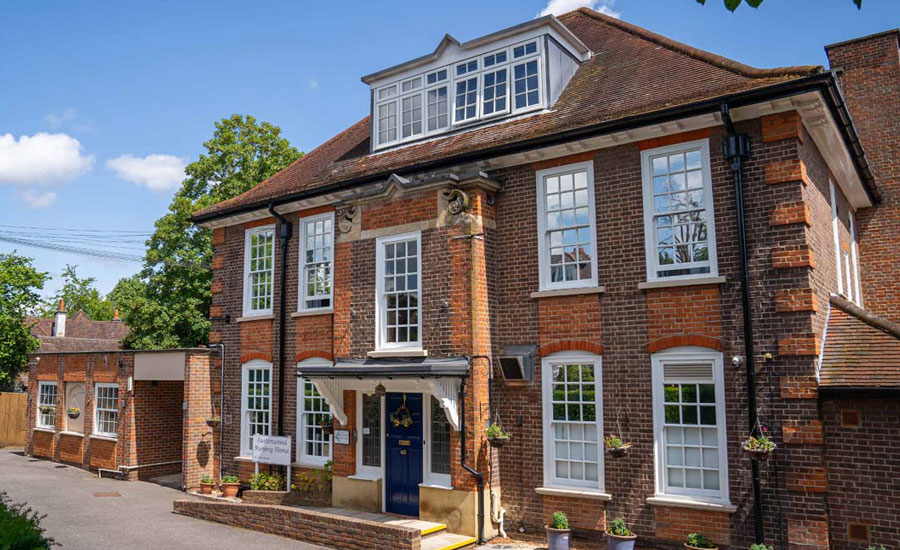What Is The Role of Care Home Managers In Staff Training?

In care homes, the role of the manager often happens behind the scenes, but it’s one of the most important.
A great care home manager sets the tone for everything, from how staff are trained to the quality of care residents receive. They’re the ones making sure daily life runs smoothly, regulations are met and every resident feels safe and happy.
This article will talk about what care home managers do and why their leadership is key to creating a safe, happy and thriving environment for residents and their families.
How Does Staff Training Impact Care in Residential Homes?
One of the most important tasks for care home managers is in staff training, ensuring carers are qualified to deliver safe, compassionate and personalised care. By overseeing training programs, managers create confident teams that can handle everything from medication to dementia care. This leads to fewer mistakes, better resident well-being and a safer, more supportive environment.
The Link Between Staff Training and Quality Care
Staff training is one of the most important factors in ensuring high-quality care in homes, and care home managers play a significant role in making it happen. Without the proper training, even the most dedicated staff can struggle to meet residents’ needs effectively.
First, it ensures safety. Training equips staff with much-needed skills like lifting and moving residents safely, administering medication correctly and handling emergencies well.
Care home staff training fosters better communication and empathy. Managers ensure staff learn how to connect with residents, especially those struggling to express themselves. Carers can provide emotional support and build trust, which can make all the difference in a resident’s day-to-day experience.
Specialised training, such as dementia care or mental health awareness, allows staff to offer incredibly personalised, compassionate care. Managers adapt training programs to align with the specific needs of their residents, ensuring that everyone receives support suited to their situation.
Continuous training builds staff confidence. When carers feel prepared and supported, they’re better equipped to handle challenges calmly and professionally.
Why Care Home Managers Are Essential for Staff Development
A well-trained team doesn’t happen by accident – it starts with strong leadership. Care home managers play a central role in staff development, shaping the quality of care provided to residents. Here’s how they make it happen:
Leading by Example
Great managers set the tone by modelling the behaviour and standards they expect from their team. Whether demonstrating best practices in resident care or handling challenging situations with professionalism, managers inspire staff to aim higher.
Identifying Skills Gaps
A good care home manager knows their teams inside out. They observe day-to-day interactions and diligently identify areas where staff need additional support or training. This proactive approach ensures everyone on the team has the skills to deliver safe, compassionate care.
Encouraging Continuous Learning
Managers encourage ongoing education by organising refresher courses, advanced certifications and workshops, keeping staff updated on the latest care techniques and regulations, improving the quality of care and boosting team confidence.
Customised Training
Every care home has unique challenges, whether it’s supporting residents with dementia or managing complex mobility issues. Care home managers customise staff training to address these needs, ensuring residents receive a personalised, high-quality care plan.
Fostering a Positive Team Culture
Care home managers create an environment where staff feel supported, valued and motivated to grow. By encouraging open communication and providing constructive feedback, they help carers build confidence in their roles. A happy, confident team leads to better outcomes for residents.
The Impact of Strong Management on Residents
A well-managed care home fosters an environment Where residents feel secure, well cared for and treated with dignity. Here’s how strong management makes a difference:
Better Quality of Life for Residents
When managers prioritise staff training and development, residents benefit from higher-quality care. Carers feel confident, prepared and attentive, which leads to more personalised support. Whether it’s ensuring medication is administered correctly or creating meaningful moments of connection, good management ensures residents’ needs are met with care and compassion.
A Safe and Secure Environment
Strong managers ensure that safety protocols are strictly followed, from infection control to emergency response plans. This focus on safety helps prevent accidents and creates a secure environment where residents and their families can feel at ease.
Building Trust and Relationships
Approachable and engaged managers set the tone for positive relationships within the home. When residents see familiar faces who listen and respond to their needs, it builds trust and a sense of comfort. Families also feel reassured knowing there’s strong leadership in place to handle any concerns.
A Positive Atmosphere
The way a care home is managed directly affects its overall atmosphere and good managers promote teamwork, encourage open communication and create community among staff and residents. Positivity filters down to every interaction, making the care home a warm, welcoming place to live.
Empowering Staff, Supporting Residents
Care home managers’ leadership shapes everything – from staff training to the atmosphere of the home – making sure residents receive compassionate, high-quality support at all times. Choosing a care home with strong, effective management is key to giving your loved one the caring environment they deserve.
Ready to explore...
